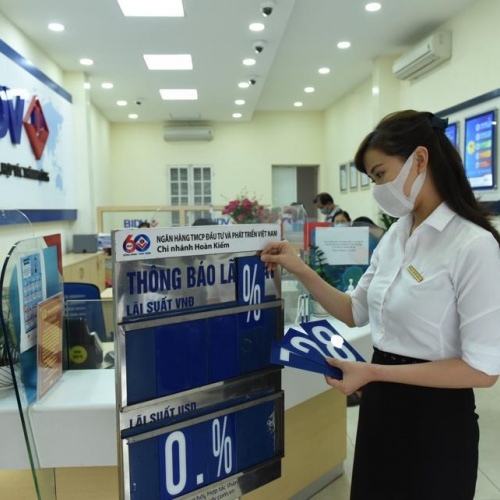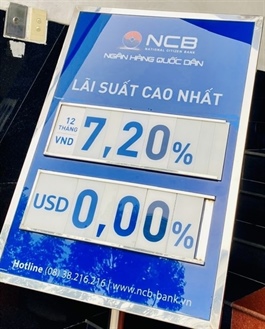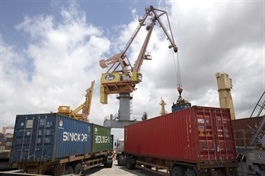C.bank not considering dropping credit growth quota for fear of rising bad debts
C.bank not considering dropping credit growth quota for fear of rising bad debts
Given the unique economic conditions of Vietnam, if banks increase credit growth without control measures, the system could return to the hot credit growth period seen before 2011.
The State Bank of Vietnam (SBV) is not expected to abolish the annual credit growth quota mechanism due to concerns that the system may return to the interest rate competition, lending, and high non-performing loans seen before 2011.

Changing interest rates at a BIDV branch in Hanoi. Photo: Pham Hung/The Hanoi Times |
In its report to the National Assembly, the SBV stated that starting in 2024, the credit "leeway" has been removed for branches of foreign banks. For other credit institutions, the SBV will gradually review and waive these limits, though some challenges remain.
The credit quota refers to the lending growth limits allocated to each bank by the SBV. These limits are calculated based on various inputs, including outstanding credit balances, ranking scores, and the sales of credit balances.
According to the SBV, the biggest challenge is that Vietnam's economy is heavily dependent on bank capital, a situation that has not changed. The pressure to balance capital to the economy continues to weigh on the banking system, posing risks of maturity mismatches and liquidity issues.
"Given the unique economic conditions of Vietnam, if banks increase credit growth without control measures, the system could return to the hot credit growth period seen before 2011," the SBV report stated.
The SBV is also concerned that this could lead to an increase in non-performing loans, threaten the safety of the banking system, and pose a risk of macroeconomic instability and inflation.
Therefore, maintaining the credit limit tool is deemed necessary by the SBV. "Removing this measure needs to be done cautiously, with a clear roadmap, and gradually in accordance with market conditions," the SBV said.
However, during a recent discussion session at the National Assembly, Ha Sy Dong, Vice Chairman of Quang Tri Province, suggested that in the long term, the SBV should use interest rate tools to manage credit rather than growth limits.
The SBV also noted that if the credit growth allocation mechanism is abolished, control will be implemented through capital adequacy and operational indicators. To achieve this, the SBV has instructed credit institutions to restructure and handle bad debts and improve governance standards.
Before 2011, the credit-to-GDP ratio increased rapidly, leading to a race in deposit and lending interest rates and a surge in bad debts. Many banks faced liquidity risks, leading to macroeconomic instability.
This year, the SBV already allocated the credit limit to banks at the beginning of the year with a growth target of 15%. This approach differs from previous years when allocations were made in several stages based on banks' applications.
























